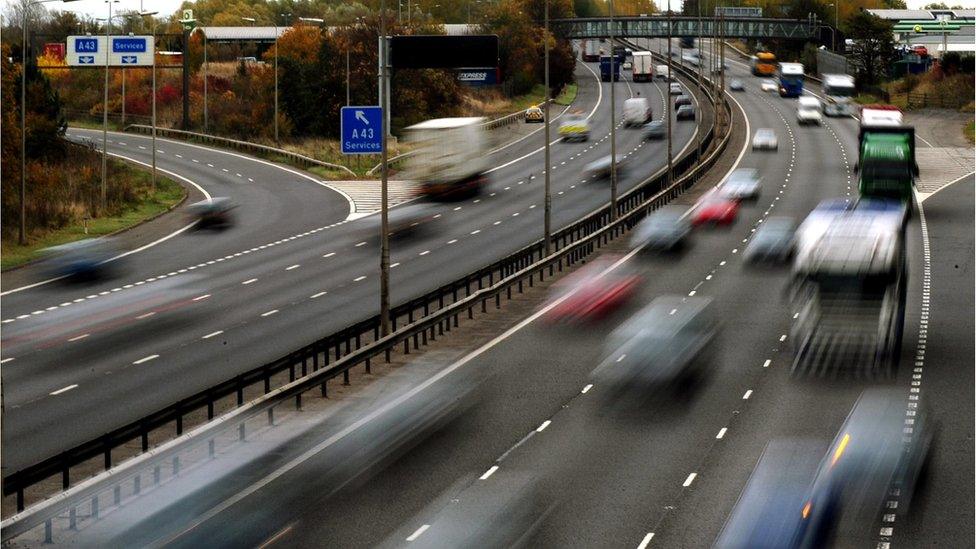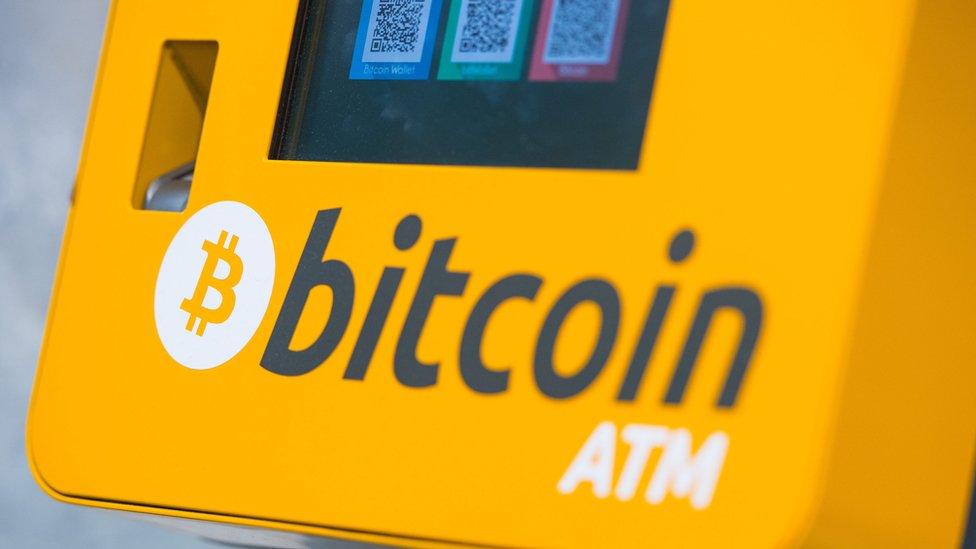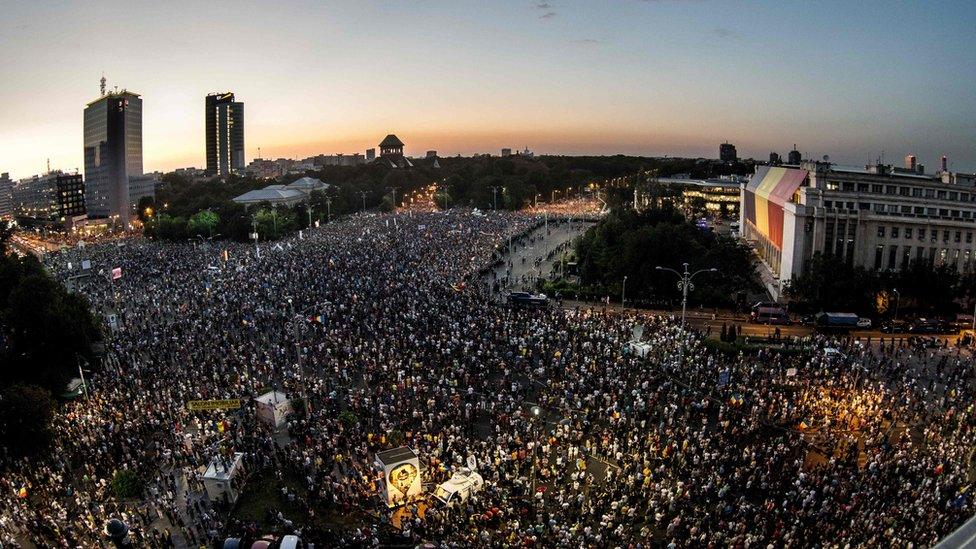Week ahead in the European Parliament
- Published

MEPs are back in Strasbourg this week for the first of two plenary sittings this month.
The additional full sitting - to make up for the fact there isn't one in August - means the legislative agenda is a bit lighter than usual.
On Wednesday, MEPs will decide whether to back demands for tougher emissions reductions targets for European carmakers.
On Tuesday, they will hold a final vote on plans to overhaul EU broadcasting rules for the internet era by introducing new requirements for online streaming websites.
Among other things, the new law will require services such as Netflix to have at least 30% "European" content in their online catalogues.
There will also be more stringent rules on advertising and protecting children from harmful content.
On Tuesday they will discuss the forthcoming EU leaders' meeting in Brussels later this month, fast becoming a potential showdown over Theresa May's Brexit plans.
Here are the main events this week…
Monday
The sitting will kick off with a debate on a proposal to harmonise the assessment of new medicines on the EU market.
The European Commission says a permanent structure for co-operation between national authorities would strengthen the internal market.
MEPs are generally supportive of the idea and on Wednesday will adopt their position on the plan, ahead of talks with governments.
After this they will debate what the European Commission should do to support victims of a crackdown on gay people in Chechnya last year.
Later they will discuss what action the EU should take to promote the use of blockchains, including providing "legal certainty" for the technology.
Some have argued that the technology would provide a more secure and transparent way for public authorities to collect taxes or provide benefits.

Blockchain technology underpins the digital currency Bitcoin
Tuesday
The debate on the forthcoming EU summit will take up most of the morning sitting, which gets underway at 08.00 BST.
After this MEPs will hear a speech from Milo Djukanovic, the President of EU candidate Montenegro.
The vote on the overhaul of online broadcasting rules will take place sometime after 11.00 BST.
This is the final vote to rubber-stamp a version of the law MEPs agreed with national ministers in June after closed-door negotiations.
MEPs will also vote on a proposal to cancel €70m in EU funds to Turkey as part of the country's stalled accession negotiations to join the bloc.
It follows an EU report in April which said the country had failed to make required improvements to its record on human rights, press freedom and the rule of law.
In the afternoon they will discuss EU funding to Unrwa, the UN's Palestinian refugee agency, external.
The EU pledged an additional €40m for Unrwa last week after the United States decided to end all funding for the agency last month.
After a debate on Yemen, they will discuss a proposal for more stringent EU-wide carbon dioxide emissions targets for new cars and vans.
The EU Commission wants new vehicles to emit 30% less CO2 by 2030 - but MEPs on the environment committee want the target upped to 45%.
They will decide on Wednesday whether to take this demand into what are likely to prove tough negotiations with national governments.
Germany has argued that European carmakers would struggle to remain competitive if the Commission's target is increased.
In the evening they will discuss changes to EU VAT rules allowing member states greater flexibility to apply reduced rates to certain products from 2022.
The changes would allow governments to zero-rate sanitary towels - currently subject to a 5% minimum VAT rate, branded by critics as a "tampon tax".
MEPs are likely to back the changes at a vote on Wednesday, although they do not have the power to amend the legislation in this case.
Wednesday
The prime ministerial double billing starts at 08.00 BST when Romanian PM Viorica Dancila will join MEPs to defend controversial changes to the Romanian justice system.
In January the EU said it was concerned about the effect the overhaul could have on judicial independence and called on Romanian MPs to "rethink".
The government has faced protests amid claims the changes will undermine efforts to tackle corruption in the country.

Several police officers were hurt during protests in August
After this, Estonian Prime Minister Juri Ratas will outline his vision for the future of the EU. He will be the tenth European leader to do so as part of a planned series.
After the lunchtime voting session, the afternoon sitting will resume at 14.00 BST with a debate on minimum wages across Europe.
MEPs will also debate a new governance framework for Eurojust, an EU agency which supports cross-border criminal investigations into certain crimes.
In the evening they will debate whether the EU should be providing more support to local authorities to help them cope with hosting migrants and refugees.
Members of the left-wing GUE and Green groups say such authorities have been left to provide services without adequate funding from their national governments.
They want the European Commission to explore giving them direct access to funds from the EU budget to pay for housing, education and healthcare.
Thursday
A fairly quiet day will get underway with a debate on a 2014 overhaul of the EU's rules for public procurement by governments and local bodies.
An advisory motion which will be voted on later in the day expresses concern about the slow adoption of electronic procurement systems.
After this, there will be short debates on this month's three topical human rights motions, which focus on cases in Belarus, the UAE and China.
As well as a motion on Yemen, the voting session will also see MEPs vote on a motion backing the EU Commission in its dispute with the UK over customs duties.
The motion does not have any legal value but effectively gives political backing to the EU's executive body.
The Commission says the UK owes it €2.7bn (£2.4bn) in customs duties on shoes and textiles imported from China between November 2011 and October 2017.
It has accused the UK of doing too little to prevent fraud after it was warned about the problem by the EU's watchdog Olaf in 2017.
Last week the Commission threatened to take the UK to the EU's top court over the matter if it is not resolved over the next two months.
The timing, of course, is rather awkward - Theresa May wants to persuade EU leaders that UK customs authorities should collect EU tariffs on goods ultimately destined for the bloc as part of her Chequers blueprint for Brexit.
Please note: This agenda is subject to modification at the opening of the session on Monday afternoon.
A guide to the European Parliament's plenary sessions can be found here.